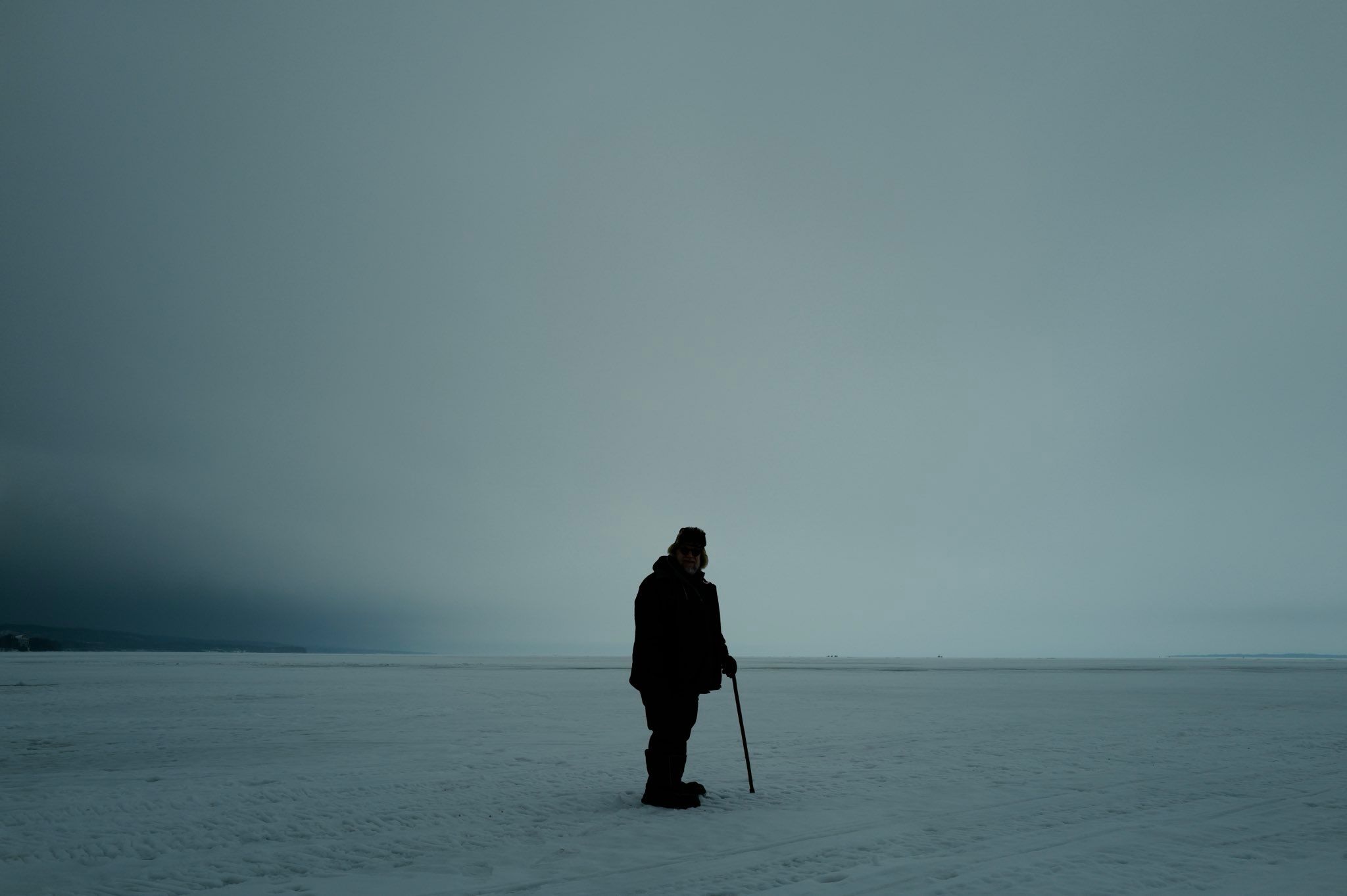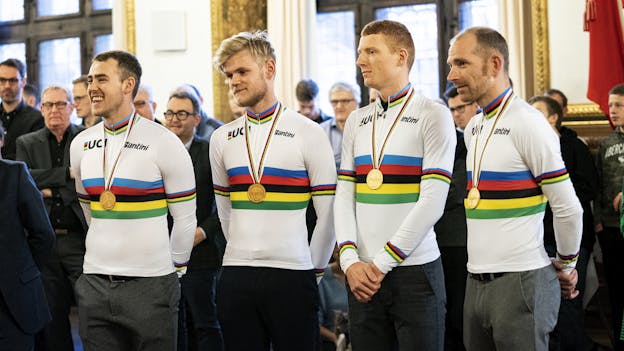Guillermo Del Toro's Frankenstein: A Horror Film? The Director's Verdict

Table of Contents
Del Toro's Vision: Beyond Traditional Horror Tropes
Del Toro's Frankenstein aims for a more nuanced approach than typical monster movies. Instead of relying solely on jump scares and gore, his adaptation promises a deeper exploration of the emotional and philosophical aspects of creation and monstrosity.
- Focus on the emotional and philosophical aspects of creation and monstrosity: Expect a profound examination of the ethical dilemmas surrounding scientific ambition and the consequences of playing God. Del Toro's signature blend of fantasy and reality will likely intertwine the scientific with the spiritual, creating a truly unique take on the classic tale.
- Exploration of themes of empathy, loneliness, and societal rejection: The creature's journey will likely be central, focusing on its struggle for acceptance in a world that fears and rejects it. This will tap into deeply human themes of alienation and the search for belonging.
- Emphasis on character development and relationships rather than jump scares: Del Toro is known for his richly developed characters and compelling relationships. Expect a focus on the intricate dynamic between Victor Frankenstein and his creation, exploring the complex father-son dynamic within a monstrous context. This character-driven narrative will likely prioritize emotional depth over cheap thrills.
- Potential use of gothic horror elements, but prioritizing character-driven narrative: While we can anticipate a gothic atmosphere—dark castles, stormy nights, and a sense of brooding dread—the story will likely prioritize the emotional arcs of its characters rather than relying on gothic horror tropes alone.
Del Toro's past works, such as Pan's Labyrinth and Crimson Peak, demonstrate his mastery of blending genres and imbuing his narratives with profound emotional depth. These films showcase his ability to craft unsettling atmospheres while maintaining a focus on character development and psychological exploration. This approach significantly differentiates Guillermo del Toro's Frankenstein from more traditional monster movies, leaning towards psychological horror and emotional horror rather than solely relying on jump scares. The film is expected to be a masterclass in gothic horror, but with a distinctly Del Toro spin.
The Monster and His Maker: A Reimagining of Classic Characters
This section delves into how Del Toro might reinterpret Victor Frankenstein and his creation. Expect significant deviations from previous adaptations.
- Analysis of potential changes to their backstories and motivations: Del Toro may explore new dimensions of Victor’s ambition and the creature’s inherent nature, potentially softening the simplistic portrayal of good versus evil. He may even delve into the creature's potential for good, exploring its capacity for empathy and understanding despite its monstrous appearance.
- Discussion of the creature's design and its symbolic meaning within the context of the film: The visual representation of the creature will be crucial. Del Toro's artistic vision will likely create a memorable and symbolic design that moves beyond traditional representations of Frankenstein's monster, reflecting the creature's inner turmoil and humanity.
- Exploration of the complex relationship between creator and creation: The relationship between Victor and the creature will likely be the emotional core of the film. This father-son dynamic, fraught with guilt, rejection, and a desperate search for connection, promises to be powerfully portrayed.
Keywords such as "Frankenstein's monster," "Victor Frankenstein," "creature design," "monster psychology," and "father-son relationship" highlight the intricate character dynamics at the heart of this reimagining.
Critical Reception and Genre Classification
Predicting critical reception for Guillermo del Toro's Frankenstein is challenging, but analyzing early reactions and comparing it to other adaptations will provide insights.
- Analysis of early reviews and audience reactions (if available): As soon as reviews and audience reactions are available, they will need to be analyzed to gauge how the film is being perceived.
- Discussion of whether it fits neatly into the "horror" genre or defies easy categorization: Given Del Toro's stylistic choices, the film may not easily fit into a single genre. It may be described as gothic fiction, dark fantasy, or a blend of horror and drama.
- Comparison to other adaptations of Frankenstein and their genre classification: Comparing this adaptation with previous film and literary versions will help contextualize its place within the broader Frankenstein narrative and genre landscape.
Is it Scary? Exploring the Horror Elements
While not relying on jump scares, Guillermo del Toro's Frankenstein will likely employ various techniques to create a chilling atmosphere.
- Discussion of potential atmospheric horror techniques used: Del Toro is a master of atmosphere, using lighting, sound, and setting to create a sense of unease and dread. Expect a masterful use of these techniques to build suspense and create psychological tension.
- Mention of body horror elements, psychological suspense, or other methods: While the level of gore is uncertain, elements of psychological suspense and atmospheric horror are likely to be present, creating a different kind of fear.
- Weighing the balance between horror and other genres: The film will likely weave horror elements into a broader narrative that encompasses drama, fantasy, and philosophical themes. The ultimate effect may be a film that is unsettling and thought-provoking without being purely a “scary” movie in the traditional sense. Keywords such as "atmospheric horror," "psychological thriller," "body horror," "suspense," and "gothic atmosphere" accurately depict the potential horror elements.
Conclusion
Ultimately, whether Guillermo del Toro's Frankenstein is categorized as "horror" is subjective. The director's unique approach blurs genre lines, prioritizing character development, emotional depth, and philosophical exploration over simple jump scares. The film's success will likely lie in its ability to engage audiences on emotional and intellectual levels, regardless of genre classification. To experience Del Toro's unique take on this classic tale, watch Guillermo del Toro's Frankenstein when it is released and form your own opinion!

Featured Posts
-
 Kommentar Zum Trainerwechsel In Augsburg Realitaet Und Erwartungen
May 30, 2025
Kommentar Zum Trainerwechsel In Augsburg Realitaet Und Erwartungen
May 30, 2025 -
 A Foragers Guide Identifying And Roasting The Carrots Wild Relative
May 30, 2025
A Foragers Guide Identifying And Roasting The Carrots Wild Relative
May 30, 2025 -
 Juedische Sportgeschichte Augsburgs Rueckkehr Und Beitrag
May 30, 2025
Juedische Sportgeschichte Augsburgs Rueckkehr Und Beitrag
May 30, 2025 -
 Gisele Pelicots Memoir Optioned By Hbo A Look At The Adaptation
May 30, 2025
Gisele Pelicots Memoir Optioned By Hbo A Look At The Adaptation
May 30, 2025 -
 25 Mal For Dolberg Analyser Af Et Potentielt Chokskifte
May 30, 2025
25 Mal For Dolberg Analyser Af Et Potentielt Chokskifte
May 30, 2025
